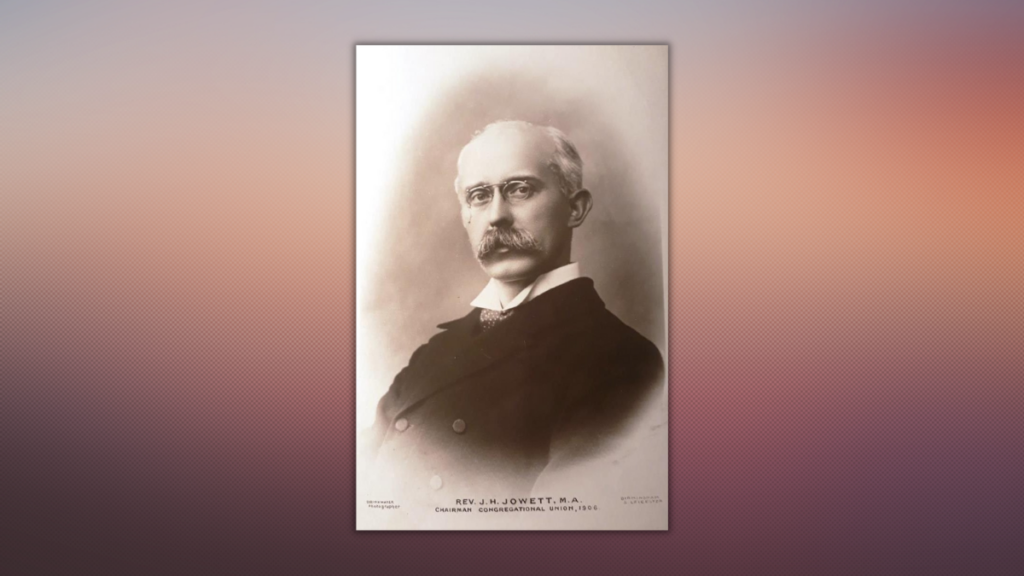By Chris Crain
Executive director, Birmingham Metro Baptist Association
The concept of a sabbatical, traditionally associated with academic and professional settings, is increasingly recognized as a valuable practice within the local church.
A sabbatical offers ministers a designated time for rest, renewal and spiritual growth, ultimately benefitting both the individual and their congregation.
One exemplary case of this practice can be seen in the ministry of pastor Michael Wallace, who serves as the vice moderator for Birmingham Metro Baptist Association.

In this important volunteer role, Michael has done an incredible job representing his church and serving our administrative committees and staff. His dedication and leadership have been invaluable assets to our association.
Not too long ago, Michael’s church, North Highlands Baptist Church in Hueytown, reached out to our office to formulate a policy regarding sabbaticals for their ministry staff. We had the privilege of being a resource in developing this policy.
Long-term effectiveness
The BMBA consulted with representatives from the personnel committee and provided examples of policies. As a result, North Highlands now has a formal sabbatical policy included in their employee handbook, marking a significant step in supporting their staff’s long-term well-being and effectiveness.
Michael has been a faithful servant at North Highlands for 21 years. He began his ministry as the student pastor, a role he held for 15 years.
Six years ago, he was called to serve as the senior pastor.
Recognizing his long-standing dedication and hard work, the church deemed Michael a well-deserving recipient of a month-long sabbatical — in addition to the vacation time he had earned.
During his sabbatical, Michael plans to spend quality time with his family, an essential aspect of personal renewal. He also intends to visit other churches to observe and learn from what God is doing among different congregations.
Additionally, he will spend time at The Cove, the retreat center of the Billy Graham Evangelistic Association, known for its serene environment conducive to spiritual reflection and growth.
On a recent Sunday, I had the honor of preaching in the pulpit at North Highlands Baptist during Michael’s first Sunday away on his sabbatical.
What I found was a vibrant and healthy congregation composed of all ages. The church was bustling with activity, having just welcomed home one missions team and preparing to send out another the following week.
Despite their busy schedule, church members took time to pray for Michael, distributing prayer guides to be used during his time away. It was heartening to witness firsthand how the congregation was actively supporting their pastor during his sabbatical.
Of course, the church staff members were more than willing and capable to provide additional support to the church during Michael’s absence.
The positive impact of Michael’s sabbatical on both him and his church is already evident.
The congregation’s continued prayers and support during this period highlight the mutual benefits of such a practice.
For Michael, this time away will provide the necessary strength and renewal to continue his long and beneficial ministry.
Forward-thinking policy
Given his relatively young age and his responsibilities as a father, the investment North Highlands has made in Michael through this sabbatical is likely to bless both him and the congregation for many years to come.
Sabbaticals are a profound blessing for ministers and their churches. By providing ministers with dedicated time for rest and renewal, churches can foster sustained, effective ministry. Michael’s sabbatical is a testament to the positive outcomes that can arise from such forward-thinking policies.
EDITOR’S NOTE — Chris Crain serves as executive director of Birmingham Metro Baptist Association. This column first appeared in the BMBA email newsletter.
Churches removing barriers
“Like the man carried by four friends and lowered through the roof to get to Jesus, some face physical barriers,” said Gary Felton, minister of special needs ministry at FBC Dallas. “Others encounter social barriers that make it challenging to connect or find their place. Churches that break down barriers and remove obstacles will find families impacted by special needs will come joyfully to be a part of their fellowship.”
“There’s no universal set of symptoms for autism,” said Wayne Yeager, lead pastor of Bethany Baptist Church in Liberty Township, Ohio, whose 9-year-old son, Anakin, has autism. “My goal … is to find a way for him to understand the truth of Jesus and accept Him as his Lord and Savior.”
“We need to normalize the conversation and break the stigma” of poor mental health, said Ryan Busler, who served as a missionary with his wife, Julie, who struggled with mental health issues. “As parents and ministers, we need to do everything we can to facilitate these conversations.”
Understanding intercession, truths related to the Christian life vital for church health
By Sam Wolfe
Veteran pastor and evangelist, Huntsville
Thousands of Southern Baptist Convention churches have ceased to grow and are on a numerical plateau or in a downward spiral.
There are reasons why most of these churches do not grow. I want to name two primary reasons.
- The great Bible principle of intercession is abandoned.
In His sovereignty, God has chosen to limit Himself to the intercession of His people.
What God does, He does in His people, with His people and through His people. Churches die when there is no intercession, for God does not work independently of His people.
Meaning of intercession
Modern man has changed the meaning of the Bible principle of intercession. They call it intercessory prayer and claim that intercession is merely calling the names of others in prayer.
An unsaved person could do that — and also a backslider — but that would not be intercession.
A study of the life of the Jesus reveals His intercession. Jesus cried, sighed, travailed with sorrow, grief and tears. He was crowned with thorns, pierced with spikes and a spear. He was scourged and spat upon. His beard was pulled out. And He was nailed to a cross. He drank the cup given to Him and “made intercession.”
The truth is: To win souls we must weep over souls. We must suffer for them as Jesus did. When Jesus said to the woman of Canaan, “Great is your faith,” He saw her taking the place of her daughter, taking her pain and suffering on herself and receiving by faith what her daughter needed (Matt. 15:28).
Hezekiah said, “This is a day of trouble, and of rebuke, and of blasphemy: for the children are come to the birth, and there is no strength to bring forth” (Isa. 37:3). Does this not describe many barren churches? They are barren because they do not know intercession.
During His life on earth, Jesus had compassion for people and prayed with “strong crying and with tears.” We may not die on a cross, but we must enter into His sufferings as Paul did. He wrote, “That I may know Him and the fellowship of His sufferings” (Phil. 3:10).
This is necessary to become an intercessor. Paul wrote: “For unto you it is given in the behalf of Christ … to suffer for His sake” (Phil. 1:29).
God’s involvement in the ministry of a church is determined by intercession.
- There is a serious lack of understanding of the Christian life.
An understanding of these truths is an absolute necessity for reaching people:
- What is a Christian
- How to become a Christian
- Repentance and faith
- Forgiveness
- What is the Christian life
- How to live the Christian life
- Understanding the gospel
- Sin
These truths and the principle of intercession must be taught.
Live joyfully and honor God now
Vision exam time. The tech bumps the black monster with two peep holes against your forehead.
Click. “Which is better, one or two?” “Two.” Click. “Two or three?” “Three.” And on it goes. Click, click, click until the assistant finds your vision sweet spot. New spectacles for you.
The Preacher was a bit of an optometrist. He offered help to find a sweet spot for your perspective on life (Eccles. 11:8–10; 12:1–8).
Solomon believed life is good and should be enjoyed all the way to the end. But he acknowledged that one day the light of life transitions to the darkness of death.
Hindrances like physical or moral weaknesses, irritating people or family problems may pop up.
Endure because the Creator is involved with you from beginning to end. The reality of God’s future judgment motivates you to live in joyful ways that honor God now.
The best time to prepare for the difficulties of old age is while young, he advises: “Remember your Creator in the days of your youth” (Eccles. 12:1a).
Older folks show the signs of age — loss of balance, strength, memory. Eventually it’s time for funeral arrangements. Relish every moment as the process of living prepares you for a new home beyond this one.
Solomon advocated a sweet spot from which to view the natural progression toward death.
Life’s meaningless unless you welcome God’s guidance at every step along the way. What are you embracing that sucks the joy from life? Will you let God have it? Click.
Darryl Wood
Midweek devotional for Liberty Baptist in Chelsea
Various Christian life, denominational thoughts
Cheat sheet of Satan’s whispers:
If only you were …
People think you’re so …
Why can’t you just …
You’re too much.
You’re not enough.
Don’t let him get you into a state of defeat by believing & repeating his scripts. God knows you completely & loves you fully!
Lysa TerKeurst
@LysaTerKeurst on X
I think it helpful, and healthy, to wrestle through various interpretations of “2nd and 3rd tier” doctrines. They help us to pursue the truth. But we should not act as though Jude’s admonition to “contend for the faith” is a call to pit believers against one another. #SameTeam
Clay Smith
@claysmith79 on X
When I was in high school, I was taught Baptist distinctives using a simple acronym. Still helpful today!
- Biblical authority
- Autonomy of the church
- Priesthood of believers
- Two ordinances: Lord’s Supper/baptism
- Individual soul competency
- Saved church membership
- Two offices: pastor/deacon
- Separation of church/state
Andrew Hebert
@andrewhebert86 on X
Here are the typical stages of pastoral ministry if you stay in a local church long enough:
Years 1–5: Becoming the pastor
Years 6–10 Being the pastor
Years 11–15: Fixing what you broke in years 1–10
Brian Croft
@PastorCroft on X






Share with others: